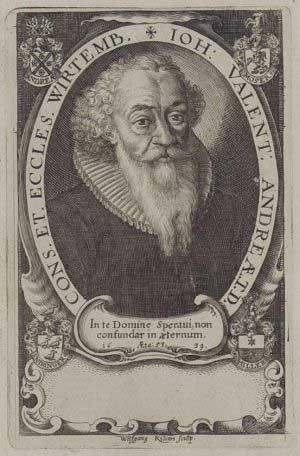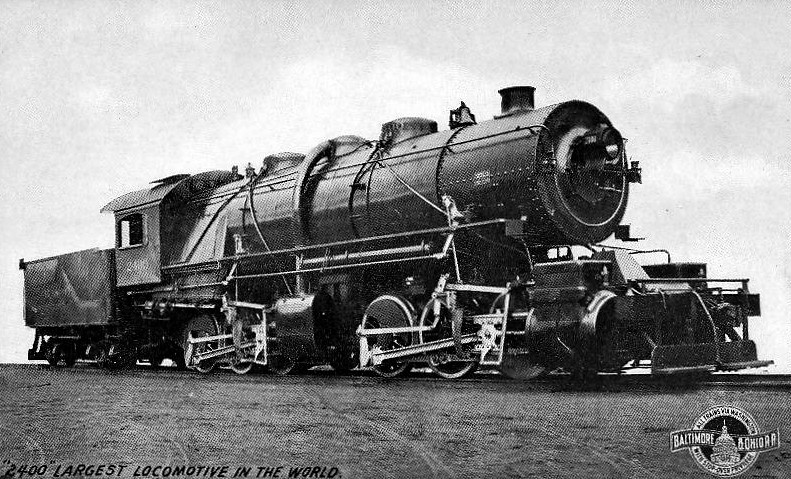
‘Old Maude’, the Baltimore and Ohio Railroad’s mallet locomotive. Postcard, c.1900–06.
(Image: Wikimedia Commons)
Most of her friends would probably agree: Lizzy Williamson does not look like a locomotive. Yet in reviewing the year and a half in which CofK’s Digital Project Manager pulled this weighty, complicated, and sometimes troublesome project forward with steadily increasing velocity through sheer force of will, this is the image which comes irresistibly to mind. Or at least it would be irresistible if locomotives were capable also of moving trains on multiple tracks simultaneously, of re-engineering their rolling stock while continuing to build up speed, and of decoupling themselves and racing round a few countries at the pace of a TGV before returning to their main task before it had lost an ounce of momentum.
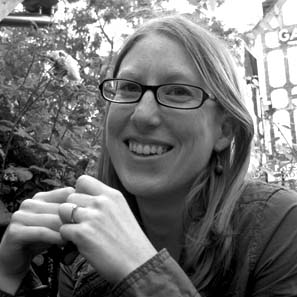 For those readers who can scarcely imagine Cultures of Knowledge without Lizzy in the driver’s seat, it is my sorrowful duty to confirm the implication of this opening paragraph: yes, our friend and colleague, Lizzy Williamson, has headed west for a life in the New World. Oxford to Baltimore is a difficult commute and so, armed with her green card, Lizzy has taken the decision to move continents and to settle with her husband in Maryland.
For those readers who can scarcely imagine Cultures of Knowledge without Lizzy in the driver’s seat, it is my sorrowful duty to confirm the implication of this opening paragraph: yes, our friend and colleague, Lizzy Williamson, has headed west for a life in the New World. Oxford to Baltimore is a difficult commute and so, armed with her green card, Lizzy has taken the decision to move continents and to settle with her husband in Maryland.
At moments such as these, CofK’s Director should pause and take stock of where the Project is now and how it could possibly have got here without the assistance of such gifted and devoted collaborators. Lizzy joined us just five months into our second phase of funding when Cultures of Knowledge was coming to grips with major technical challenges. EMLO was emerging from the Project’s first phase with its in-depth focus on six pilot correspondences; we needed to re-engineer our self-contained union catalogue to enable it to incorporate metadata from a wide range of partners, from independent scholars to scholarly projects, from publishers of digital and hard-copy editions alike to compilers of repository catalogues. Lizzy came on board at this pivotal moment and in the twenty months during which we have been fortunate to have her working with us, EMLO has been substantially re-engineered, relaunched with a new-look user interface, begun a phase of rapid and sustained growth, and found itself at the centre of exciting discussions about ambitious future developments in a COST network involving over thirty countries.
This remarkable transition has been made possible in no small measure by Lizzy’s extraordinary combination of passion for the project and coolness in the face of adversity, and of a chameleonic capacity to reinvent herself as constantly evolving demands require, together with constancy of underlying purpose. Lizzy’s contribution to setting the stage for the project’s third and most expansive phase has been immense, and our gratitude for her foundational contribution has only been increased by the assistance she has continued to give in recent weeks as we transition into a new era in the history of the project.
Thankfully, the sorrow felt among Project staff as Lizzy departs has also been countered by our excitement at the arrival of her successor as Digital Project Manager, Arno Bosse.  Once again, CofK seems to have attracted just the person it needs to confront a new set of challenges. For six years before his recent period as Digital Humanities Research Associate in the Research and Development Department of Göttingen State and University Library, Arno was Director of Technology in the Humanities Division at the University of Chicago. Only a few weeks into his new post and it is already crystal clear that the wealth of experience obtained in these roles equips him admirably for confronting the unprecedented technical challenges of growing EMLO into a collaboratively designed, built, and populated resource.
Once again, CofK seems to have attracted just the person it needs to confront a new set of challenges. For six years before his recent period as Digital Humanities Research Associate in the Research and Development Department of Göttingen State and University Library, Arno was Director of Technology in the Humanities Division at the University of Chicago. Only a few weeks into his new post and it is already crystal clear that the wealth of experience obtained in these roles equips him admirably for confronting the unprecedented technical challenges of growing EMLO into a collaboratively designed, built, and populated resource.
Of course there can be no delay on our CofK train, coupled as it is with the rapidly evolving COST Action and, as we pass through this particular station, we have a few further changes to announce. Our trusty Project Administrator, Emma Curran, has alighted in order to focus on a single part-time job while she brings her PhD to completion, and our admirably efficient inaugural COST administrator, Briony Truscott — although thankfully not leaving the History Faculty — is handing over to a new colleague, Dobrochna Futro, 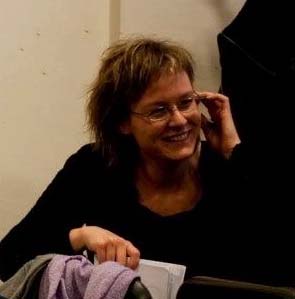 who joins us to combine the dual roles of CofK and COST Administrators. With significant experience in event management and administration, we consider ourselves extremely fortunate that Dobrochna has settled into her crucial seat to enable this invaluable link between the two projects to be created. It may be ‘All Change’ at present the length of the train, but our long term destination remains steadfast ahead, and we would like once again to thank all past and present staff for travelling with us down this particular track.
who joins us to combine the dual roles of CofK and COST Administrators. With significant experience in event management and administration, we consider ourselves extremely fortunate that Dobrochna has settled into her crucial seat to enable this invaluable link between the two projects to be created. It may be ‘All Change’ at present the length of the train, but our long term destination remains steadfast ahead, and we would like once again to thank all past and present staff for travelling with us down this particular track.
 We could not be more delighted to announce today’s publication in EMLO of a fascinating sixteenth-century correspondence catalogue: that of Philip Sidney, the poet and Elizabethan diplomat and courtier, which comes to us as the result of an exciting new partnership between EMLO and Oxford University Press’s major digital publishing enterprise, Oxford Scholarly Editions Online [OSEO].
We could not be more delighted to announce today’s publication in EMLO of a fascinating sixteenth-century correspondence catalogue: that of Philip Sidney, the poet and Elizabethan diplomat and courtier, which comes to us as the result of an exciting new partnership between EMLO and Oxford University Press’s major digital publishing enterprise, Oxford Scholarly Editions Online [OSEO].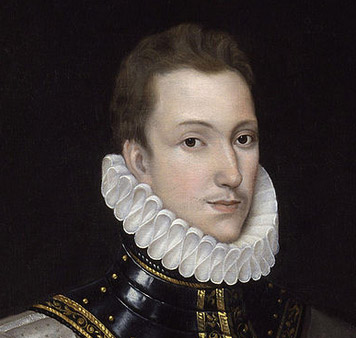


 For those readers who can scarcely imagine Cultures of Knowledge without Lizzy in the driver’s seat, it is my sorrowful duty to confirm the implication of this opening paragraph: yes, our friend and colleague, Lizzy Williamson, has headed west for a life in the New World. Oxford to Baltimore is a difficult commute and so, armed with her green card, Lizzy has taken the decision to move continents and to settle with her husband in Maryland.
For those readers who can scarcely imagine Cultures of Knowledge without Lizzy in the driver’s seat, it is my sorrowful duty to confirm the implication of this opening paragraph: yes, our friend and colleague, Lizzy Williamson, has headed west for a life in the New World. Oxford to Baltimore is a difficult commute and so, armed with her green card, Lizzy has taken the decision to move continents and to settle with her husband in Maryland. Once again, CofK seems to have attracted just the person it needs to confront a new set of challenges. For six years before his recent period as Digital Humanities Research Associate in the Research and Development Department of Göttingen State and University Library, Arno was Director of Technology in the Humanities Division at the University of Chicago. Only a few weeks into his new post and it is already crystal clear that the wealth of experience obtained in these roles equips him admirably for confronting the unprecedented technical challenges of growing EMLO into a collaboratively designed, built, and populated resource.
Once again, CofK seems to have attracted just the person it needs to confront a new set of challenges. For six years before his recent period as Digital Humanities Research Associate in the Research and Development Department of Göttingen State and University Library, Arno was Director of Technology in the Humanities Division at the University of Chicago. Only a few weeks into his new post and it is already crystal clear that the wealth of experience obtained in these roles equips him admirably for confronting the unprecedented technical challenges of growing EMLO into a collaboratively designed, built, and populated resource. who joins us to combine the dual roles of CofK and COST Administrators. With significant experience in event management and administration, we consider ourselves extremely fortunate that Dobrochna has settled into her crucial seat to enable this invaluable link between the two projects to be created. It may be ‘All Change’ at present the length of the train, but our long term destination remains steadfast ahead, and we would like once again to thank all past and present staff for travelling with us down this particular track.
who joins us to combine the dual roles of CofK and COST Administrators. With significant experience in event management and administration, we consider ourselves extremely fortunate that Dobrochna has settled into her crucial seat to enable this invaluable link between the two projects to be created. It may be ‘All Change’ at present the length of the train, but our long term destination remains steadfast ahead, and we would like once again to thank all past and present staff for travelling with us down this particular track. is available for consultation in the front end of EMLO. This publication marks a significant milestone in the history of Cultures of Knowledge and we could not be more pleased to share with you records for 3,696 manuscript letters (from what will be an eventual total of more than 4,500) contributed by our esteemed partner, the
is available for consultation in the front end of EMLO. This publication marks a significant milestone in the history of Cultures of Knowledge and we could not be more pleased to share with you records for 3,696 manuscript letters (from what will be an eventual total of more than 4,500) contributed by our esteemed partner, the 